BMW 1 Series vs Peugeot 408 – Differences & prices compared
Compare performance, boot space, consumption and price in one view.
Find out now: which car is the better choice for you – BMW 1 Series or Peugeot 408?
The BMW 1 Series (Hatchback) comes with a Diesel, Petrol MHEV, Diesel MHEV or Petrol engine and Automatic transmission. In comparison, the Peugeot 408 (SUV) features a Electric, Petrol MHEV or Plugin Hybrid engine with Automatic transmission.
When it comes to boot capacity, the BMW 1 Series offers 380 L, while the Peugeot 408 provides 536 L – depending on how much space you need. If you’re looking for more power, decide whether the 300 HP of the BMW 1 Series or the 225 HP of the Peugeot 408 suits your needs better.
In terms of consumption, the values are 4.30 L per 100 km for the BMW 1 Series, and 15.10 kWh0.90 L for the Peugeot 408.
Price-wise, the BMW 1 Series starts at 28200 £, while the Peugeot 408 is available from 34300 £. Compare all the details and find out which model fits your lifestyle best!
In the competitive compact segment, the BMW 1 Series and the Peugeot 408 offer distinct experiences tailored for different drivers. The BMW 1 Series emphasizes luxury and performance, featuring a rear-wheel-drive platform and a selection of potent engines, making it ideal for those who value driving dynamics. On the other hand, the Peugeot 408, with its chic design and tech-laden interior, appeals to buyers seeking innovation and practicality with its fuel-efficient powertrains and roomy cabin.
BMW 1 Series
The BMW 1 Series stands out with its dynamic design that embodies both elegance and sportiness, making it an attractive choice for urban driving. Its interior offers a premium feel, combining quality materials with the latest in technological features to enhance comfort and connect drivers. Under the bonnet, a range of efficient engines ensures a responsive and enjoyable driving experience, balancing power with practicality.
details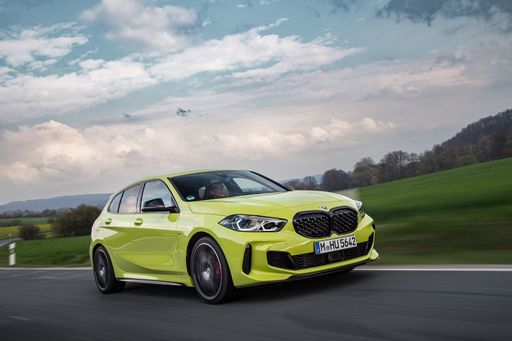 @ press.bmwgroup.com
@ press.bmwgroup.com
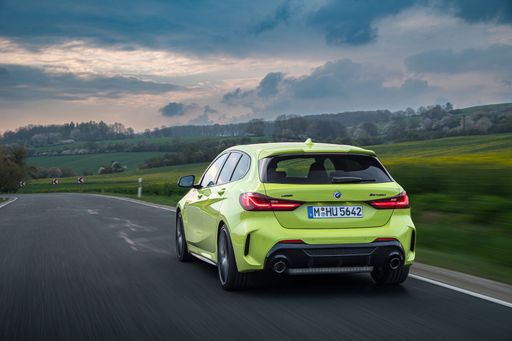 @ press.bmwgroup.com
@ press.bmwgroup.com
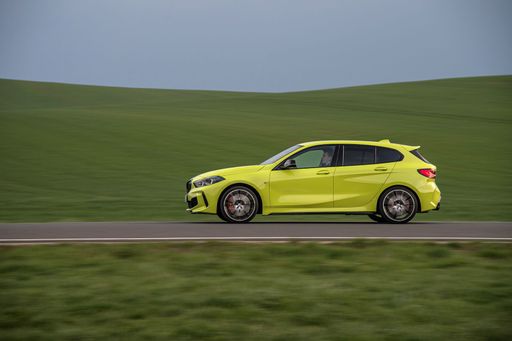 @ press.bmwgroup.com
@ press.bmwgroup.com
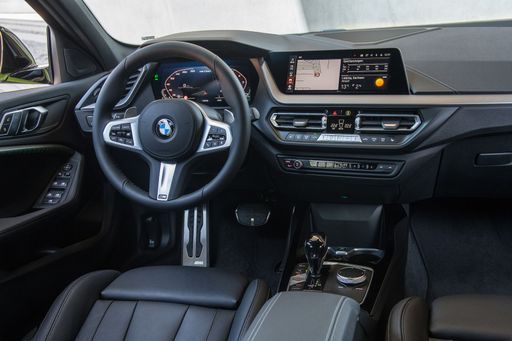 @ press.bmwgroup.com
@ press.bmwgroup.com
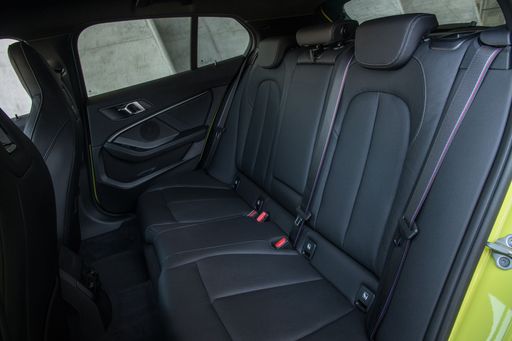 @ press.bmwgroup.com
@ press.bmwgroup.com
Peugeot 408
The Peugeot 408 captivates with its sleek and dynamic design, setting it apart in the competitive crossover market. Its interior offers a perfect blend of comfort and cutting-edge technology, creating an enjoyable driving experience. The model's efficient performance and modern features make it a compelling choice for those seeking both style and functionality in their vehicles.
details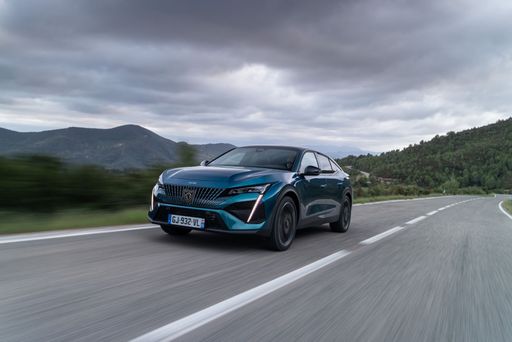 @ media.stellantis.com
@ media.stellantis.com
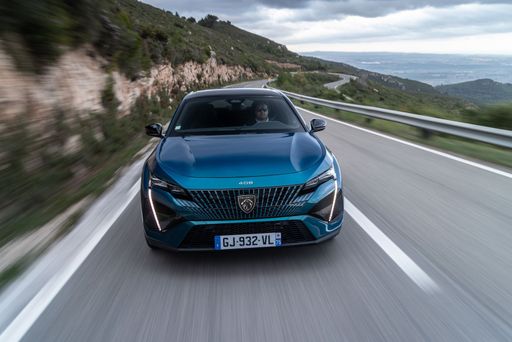 @ media.stellantis.com
@ media.stellantis.com
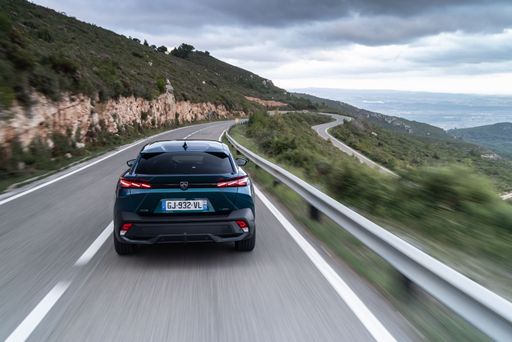 @ media.stellantis.com
@ media.stellantis.com
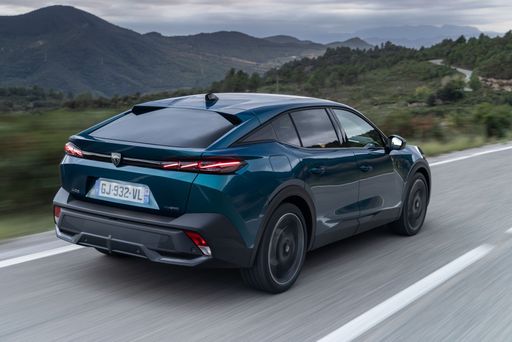 @ media.stellantis.com
@ media.stellantis.com
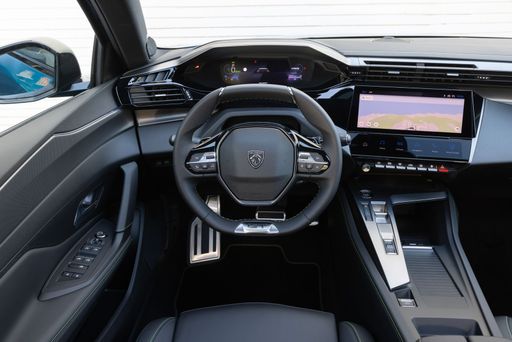 @ media.stellantis.com
@ media.stellantis.com
Battle of the Compacts: BMW 1 Series vs Peugeot 408
In the ever-evolving automotive world, choosing the right vehicle can be a daunting task. With numerous options flooding the market, two vehicles have recently caught the attention of car enthusiasts and potential buyers alike: the BMW 1 Series and the Peugeot 408. Let's delve into the particulars of each model, emphasizing their technical aspects and innovations.
Design and Body Style
The BMW 1 Series, with its sleek hatchback design, embodies the traditional sporty look that BMW is known for. Measuring 4361 mm in length, 1800 mm in width, and 1459 mm in height, this compact vehicle is tailored for urban driving, easily navigating tight spaces.
On the flip side, the Peugeot 408 stands as an SUV, offering a more commanding presence on the road. With dimensions of 4687 mm in length, 1848 mm in width, and 1478 mm in height, the 408 is a larger vehicle, ideally suited for those who favor space and versatility.
Performance and Engine Variants
The BMW 1 Series offers a range of engine options, including diesel, petrol MHEV (Mild Hybrid Electric Vehicle), and classic petrol. The power spectrum ranges from 122 HP to a vigorous 300 HP, catering to both conservative drivers and speed enthusiasts. With an acceleration time from 0-100 km/h as swift as 4.9 seconds in its top configuration, the 1 Series doesn't compromise on performance.
Peugeot 408 leans towards an eco-friendly approach with options like petrol MHEV, plugin hybrid, and even a fully electric variant. With power outputs ranging from 136 HP to 225 HP, the 408 provides a good balance between power and efficiency. The hybrid variant boasts impressive fuel consumption figures of just 1.5 L/100km, highlighting its economical advantage.
Transmission and Drive
Both models feature modern automatic transmissions. The BMW 1 Series is equipped with a dual-clutch automatic system, offering both front-wheel and all-wheel-drive configurations, a desirable feature for those living in diverse climates and terrains.
Similarly, the Peugeot 408 comes with a range of transmission options such as dual-clutch automatic and automatic gearbox, but all remain front-wheel drive. This can be seen as a limitation in contrast to the all-wheel capabilities of the BMW.
Interior and Capacity
When it comes to cabin space, the Peugeot 408 triumphs with a larger trunk capacity of 536 liters against the BMW 1 Series' 380 liters, offering more practicality for storage. Both models comfortably seat five, but the additional trunk space in the 408 could be a decisive factor for families or frequent travelers.
Efficiency and Environmental Considerations
The BMW 1 Series has a range of CO2 emissions from 112 g/km to 173 g/km, placing it in efficiency classes ranging from C to F. While it offers diverse powertrain options, the emissions could be a concern for eco-conscious buyers.
In contrast, the Peugeot 408 shines with its low emissions, especially in the plugin hybrid and electric variants, producing as little as 0 g/km. This positions the 408 as a favorable choice in markets where environmental regulations are becoming increasingly stringent.
Conclusion
Ultimately, the choice between the BMW 1 Series and the Peugeot 408 comes down to personal preferences and needs. The BMW 1 Series appeals to those seeking a mix of performance, luxury, and sporty appeal. Meanwhile, the Peugeot 408 is ideal for buyers prioritizing space, efficiency, and sustainability. Both models offer a blend of technical sophistication and automotive innovation, reflecting the diversity of the modern car market.

|

|
|
|
|
Costs and Consumption |
|
|---|---|
|
Price
28200 - 51000 £
|
Price
34300 - 44400 £
|
|
Consumption L/100km
4.3 - 7.6 L
|
Consumption L/100km
0.9 - 5.1 L
|
|
Consumption kWh/100km
-
|
Consumption kWh/100km
15.10 kWh
|
|
Electric Range
-
|
Electric Range
77 - 453 km
|
|
Battery Capacity
-
|
Battery Capacity
58.20 kWh
|
|
co2
112 - 173 g/km
|
co2
0 - 114 g/km
|
|
Fuel tank capacity
49 L
|
Fuel tank capacity
42 - 52 L
|
Dimensions and Body |
|
|---|---|
|
Body Type
Hatchback
|
Body Type
SUV
|
|
Seats
5
|
Seats
5
|
|
Doors
5
|
Doors
5
|
|
Curb weight
1465 - 1625 kg
|
Curb weight
1544 - 1879 kg
|
|
Trunk capacity
300 - 380 L
|
Trunk capacity
471 - 536 L
|
|
Length
4361 mm
|
Length
4687 mm
|
|
Width
1800 mm
|
Width
1848 mm
|
|
Height
1459 mm
|
Height
1478 mm
|
|
Payload
475 - 510 kg
|
Payload
371 - 456 kg
|
Engine and Performance |
|
|---|---|
|
Engine Type
Diesel, Petrol MHEV, Diesel MHEV, Petrol
|
Engine Type
Electric, Petrol MHEV, Plugin Hybrid
|
|
Transmission
Automatic
|
Transmission
Automatic
|
|
Transmission Detail
Dual-Clutch Automatic
|
Transmission Detail
Dual-Clutch Automatic
|
|
Drive Type
Front-Wheel Drive, All-Wheel Drive
|
Drive Type
Front-Wheel Drive
|
|
Power HP
122 - 300 HP
|
Power HP
145 - 225 HP
|
|
Acceleration 0-100km/h
4.9 - 9.8 s
|
Acceleration 0-100km/h
7.2 - 9.4 s
|
|
Max Speed
210 - 250 km/h
|
Max Speed
160 - 233 km/h
|
|
Torque
230 - 400 Nm
|
Torque
230 - 360 Nm
|
|
Number of Cylinders
3 - 4
|
Number of Cylinders
4
|
|
Power kW
90 - 221 kW
|
Power kW
107 - 165 kW
|
|
Engine capacity
1499 - 1998 cm3
|
Engine capacity
1199 - 1598 cm3
|
General |
|
|---|---|
|
Model Year
2024
|
Model Year
2024 - 2025
|
|
CO2 Efficiency Class
D, C, F
|
CO2 Efficiency Class
A, C, B
|
|
Brand
BMW
|
Brand
Peugeot
|
BMW 1 Series
Exploring the BMW 1 Series: A Compact Powerhouse
The latest iteration of the BMW 1 Series continues to set the benchmark for premium compact cars, blending cutting-edge technology and efficient performance. Known for its sporty design and responsive driving dynamics, the BMW 1 Series offers a range of options that cater to varied preferences and needs. Let’s delve into the technical details and innovations that make this vehicle a standout in its class.
Advanced Engine Variants and Performance
Under the hood, the BMW 1 Series offers a varied selection of powertrains, including diesel, petrol mild-hybrid, and pure petrol options. Power outputs range from 150 to an impressive 300 PS, allowing drivers to opt for either efficiency or sheer performance. The utilisation of mild-hybrid technology in some variants ensures a smooth and efficient drive, with increased torque available for dynamic acceleration.
All models come equipped with an Automatic Transmission, more specifically, a double-clutch gearbox for seamless gear transitions, offering a responsive drive whether you're navigating city streets or the open road. The top-of-the-line M135 variant boasts all-wheel drive capability, enhancing traction and control even further.
Efficient and Sustainable Driving
The BMW 1 Series is engineered for efficiency, achieving fuel consumption as low as 4.3 litres per 100 km in some diesel variants, while the petrol models also demonstrate competitive efficiency ratings. In terms of emissions, the range offers CO2 output figures between 112 to 173 g/km, garnering respectable CO2-efficiency ratings. Additionally, the mild-hybrid variants benefit from regenerative braking, which captures energy usually lost during braking and uses it to power the vehicle.
Innovative Technology and Comfort
Step inside the BMW 1 Series and you'll find a driver-focused cockpit outfitted with the latest in automotive technology. The infotainment system is hosted on a high-resolution display, providing easy access to navigation, entertainment, and vehicle settings. Key features like smartphone integration and voice control enhance the connectivity options available, creating a seamless link between driver and machine.
On the comfort front, the BMW 1 Series provides a refined interior experience, with high-quality materials and finishes. There's generous space for up to five passengers, alongside a versatile boot capacity that ranges from 300 to 380 litres, accommodating both daily errands and weekend getaways.
Design and Dimensions
The exterior design of the BMW 1 Series showcases its sporty lineage with a compact and agile silhouette. Measuring 4361 mm in length and 1800 mm in width, it maintains a confident road stance, while its height of 1459 mm contributes to a sleek, aerodynamic profile. Furthermore, the 1 Series is available in several stylistic options, providing aesthetics that can be customised to personal preference, including M Sport packages that introduce more aggressive styling cues.
Conclusion: A Harmony of Performance and Comfort
The BMW 1 Series deftly balances performance, efficiency, and comfort, making it a compelling choice for those in the market for a premium compact car. With its range of powerful engines, state-of-the-art technology, and stylish design, the BMW 1 Series remains a leader in its segment. Whether you prioritise sporty performance or efficient urban commuting, the 1 Series is equipped to deliver beyond expectations.
Peugeot 408
The New Lion on the Block: The Peugeot 408
As Peugeot continues to innovate within the SUV segment, the latest iteration of the Peugeot 408 sets new standards in technology, efficiency, and design. With its cutting-edge engineering and innovative features, the Peugeot 408 is more than just a stylish SUV—it's a marvel of modern automotive technology. This article dives into the technical details and innovations that make the Peugeot 408 a highly compelling choice for consumers in the market for a new vehicle.
A Glimpse into the Engine Bay: Performance and Efficiency
The Peugeot 408 comes with a diverse range of powertrains that blend performance and fuel efficiency. Featuring a selection of petrol mild-hybrid, petrol, and plug-in hybrid options, the 408 caters to a variety of driving preferences. The engines have a power output ranging from 131 to 225 PS, ensuring that there's a version suited to both city commutes and highway cruising.
Fuel economy is a significant focus, with consumption figures spanning from an impressive 1.5 L/100km for the plug-in hybrid models to a moderate 6.1 L/100km for the traditional petrol engines. Additionally, the plug-in hybrid versions boast an electric range of up to 55 kilometres, ideal for reducing emissions during shorter journeys.
Ultimate Comfort and Technology in the Cockpit
Peugeot excels in creating interiors that provide both comfort and cutting-edge technology. The 408 doesn't disappoint in this regard. It offers a spacious cabin, accommodating up to five passengers, with high-quality materials and ergonomic designs that enhance the driving experience.
The infotainment system in the Peugeot 408 is state-of-the-art, featuring a responsive touchscreen interface, premium sound options, and seamless connectivity with smartphones. Advanced driver-assistance systems such as adaptive cruise control, lane-keeping assist, and automated emergency braking ensure that journeys are not only comfortable but also safe.
Design Meets Function: Exterior and Practicality
In the realm of exterior design, Peugeot has delivered a striking silhouette with aerodynamic lines and a robust SUV stance. Measuring 4687 mm in length, 1848 mm in width, and 1478 mm in height, the 408 boasts a dynamic presence on the road without compromising on practicality.
Practicality is further enhanced by a generous boot space that ranges from 471 to 536 litres, depending on the model, making it perfect for family trips or weekend getaways. A high payload capacity and thoughtfully designed storage solutions ensure that the Peugeot 408 remains versatile, able to adapt to various lifestyle needs.
Environmental Responsibility and Sustainable Driving
With a keen eye on sustainability, the Peugeot 408 offers an impressive CO2 efficiency rating. The plug-in hybrid versions, in particular, present a substantial reduction in carbon emissions, operating at as low as 33 g/km. This makes the 408 a viable option for environmentally conscious consumers seeking to minimise their carbon footprint.
The automaker's commitment to sustainability does not end at emissions. The materials used in the 408's construction are carefully selected to promote durability and recyclability, ensuring that the vehicle maintains a lower impact on the environment throughout its lifecycle.
Conclusion: The Perfect Blend of Innovation and Tradition
The Peugeot 408 is a remarkable illustration of Peugeot's ability to blend traditional automotive values with the latest technological advancements. Its innovative powertrains, luxurious interiors, and forward-thinking design make it a formidable contender in the competitive SUV market. Whether you prioritise fuel economy, driving performance, or cutting-edge technology, the Peugeot 408 is poised to meet and exceed expectations. As Peugeot advances into the future, the 408 leads the charge as a testament to the brand's relentless pursuit of excellence.
Which drive types are available for the BMW 1 Series?
Available as Front-Wheel Drive or All-Wheel Drive.
The prices and data displayed are estimates based on German list prices and may vary by country. This information is not legally binding.
